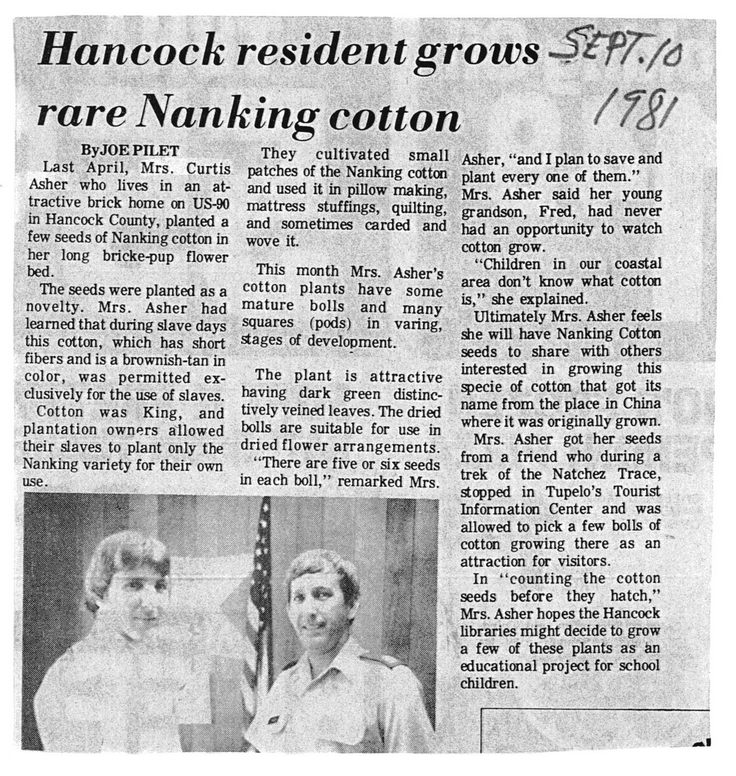This text was obtained via automated optical character recognition.
It has not been edited and may therefore contain several errors.
Hancock resident grows rare Nanking cotton / ByJOE PILET Last April, Mrs. Curtis Asher who lives in an attractive brick home on US-90 in Hancock County, planted a few seeds of Nanking cotton in her long bricke-pup flower bed. The seeds were planted as a novelty. Mrs. Asher had learned that during slave days this cotton, which has short fibers and is a brownish-tan in color, was permitted exclusively for the use of slaves. Cotton was King, and plantation owners allowed their slaves to plant only the Nanking variety for their own use. They cultivated small patches of the Nanking cotton and used it in pillow making, mattress stuffings, quilting, and sometimes carded and wove it. This month Mrs. Asher’s cotton plants have some mature bolls and many squares (pods) in varing, stages of development. The plant is attractive having dark green distinctively veined leaves. The dried bolls are suitable for use in dried flower arrangements. “There are five or six seeds in each boll,” remarked Mrs. Asher, “and I plan to save and plant every one of them.” Mrs. Asher said her young grandson, Fred, had never had an opportunity to watch cotton grow. “Children in our coastal area don’t know what cotton is,” she explained. Ultimately Mrs. Asher feels die will have Nanking Cotton seeds to share with others interested in growing this specie of cotton that got its name from the place in China where it was originally grown. Mrs. Asher got her seeds from a friend who during a trek of the Natchez Trace, stopped in Tupelo’s Tourist Information Center and was allowed to pick a few bolls of cotton growing there as an attraction for visitors. In “counting the cotton seeds before they hatch,” Mrs. Asher hopes the Hancock libraries might decide to grow a few of these plants as an educational project for school children.

Hancock County History General Newspaper Clippings Nanking-cotton